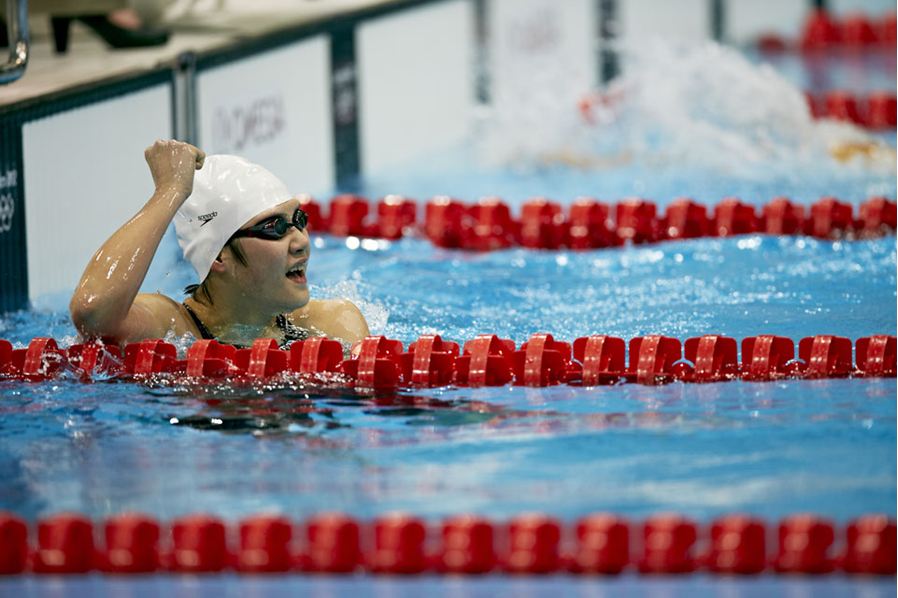Specialist Dental Group has launched an on-going series of blog posts by our individual dental specialists. All views provided are the dentist’s own opinions and are posted on this blog as part of our on-going efforts to educate the public about dental issues and other matters of interest relating to dentistry and healthcare.
 I am a major fan of the Olympic Games and these past days, the television in my home has been constantly on to catch the latest updates on the Summer Olympics.
I am a major fan of the Olympic Games and these past days, the television in my home has been constantly on to catch the latest updates on the Summer Olympics.
The Olympic Games is no small matter. Thousands and thousands of people have made a lot of sacrifices in their lives in order to earn the right to participate in the Olympics. Even though it is known as the ‘games’, it is no playing matter. I am sure every athlete has gone all out in their efforts to excel in their chosen sporting event(s). All were trained to win and learned to lose – after all, there are only a few medals for each event.
Let’s look at some statistics:
- It takes approximately 40,000 steps for an elite runner to finish running a marathon of 42.195km
- Swimmers routinely swim close to 10km daily so that they can swim flat out at the last 25 meter of a 200m event
- In order to complete these punishing workouts, these elite athletes individually generate an amount of carbon dioxide that is almost equivalent to a small passenger car on a daily basis
- Close to 20,000 athletes are supposed to check into the Olympic Village during the Olympic Games and the Paralympic Games, which means that there are almost 600,000 teeth among the athletes in London this month. Conservatively speaking, some of them are likely to need dental treatment especially when we know that younger individuals have a higher chance of getting dental problems such as wisdom teeth infection.
There are a few groups of medicines, even though they are perfectly safe under proper clinical diagnosis and prescription, which are closely watched in the anti-doping drug control programs:
- stimulants (the reason is obvious, right?),
- steroids (‘roids’ helps muscle growth and recovery),
- painkillers (which allow the athletes to withstand more pain),
- growth hormones (similar to steroids),
- diuretics (helps to flush out other questionable drugs and lose weight)
The issue is that some of the medicines above are routinely used in treating infections. It will be challenging for the clinician if an elite athlete happened to develop an acute dental infection (e.g. wisdom teeth) during the Olympic Games.
An anti-doping program is not to ensure fair play during the Games only, it is a year- round program for the established athletes. A few days ago, we have seen a 16 year-old Chinese athlete, Miss Ye Shi-Wen 「葉詩文」break the 400m Individual Swimming Medley record by a good margin. Some people expressed concern that her prowess could be attributed to doping. Well, the story was that she went through a dental extraction not too long ago WITHOUT dental anesthesia to avoid violating anti-doping protocols and risking her chances in the Games!!
Now, this incident speaks a lot of the dedication of this young lady. However, her coach should have just got a dentist who had a good idea of what was ‘safe’ to prescribe in her case. She could have won her gold medals with one less painful experience.
 Dr. Ansgar C. Cheng is a Dental Specialist in Prosthodontics (Teeth Replacement) with Specialist Dental Group™. He is also an Adjunct Associate Professor with the National University of Singapore. He has a special interest in dental implants, cosmetic dentistry and treatment of medically compromised patients, including cancer patients. For more information about Dr. Cheng, click here
Dr. Ansgar C. Cheng is a Dental Specialist in Prosthodontics (Teeth Replacement) with Specialist Dental Group™. He is also an Adjunct Associate Professor with the National University of Singapore. He has a special interest in dental implants, cosmetic dentistry and treatment of medically compromised patients, including cancer patients. For more information about Dr. Cheng, click here





